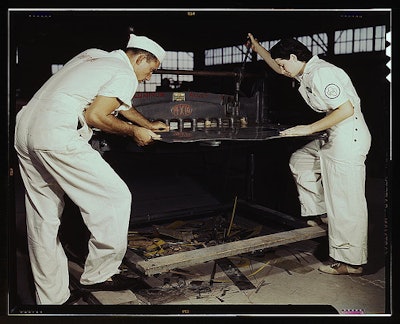
While it is always a good business practice to think ahead, managers and supervisors sometimes forget to consider the "right now."
This often happens when it comes to training employees with the skills needed, so that they can effectively perform their current job or when they are given a new position. They may have been a stellar performer in their previous job, and the same is expected now. But it's not the same job. Different skills are required, and without those different skills, even a highly valued employee will fail.
Statistics show that 50 percent of supervisors who are promoted to the next level will fail, and half of those who struggle will end up returning to their previous jobs.
More than 40 years ago, Dr. Laurence Peter and Raymond Hull wrote a book called The Peter Principle, which is as true today as it was then. The book stipulates that, in a hierarchical organization, a person tends to be promoted until he or she can no longer competently perform his or her job.
No doubt "Peter" reached a point in which he did not have the training he needed to succeed, but because of his past exemplary performance, he was not demoted — he was left in the position, clogging progress for the entire company.
You can probably imagine this happening: When a long-time supervisor leaves the company, who will replace him? Managers look around and see an employee who has always been a go-getter, and suggest that person be promoted. But again, the star performer is not going to the same job in which he previously excelled. Without proper training, even the most ambitious employee can fail.
In a manufacturing environment, for example, new employees often receive some type of instruction or training on machinery, and on policies and procedures, but it is not “soft-skills training,” which, ironically, is the most important. Teaching employees how to communicate with each other and their supervisors, how to handle conflict and how to work in a team is essential for employees on every rung of the corporate ladder.
Not long ago, an entry-level employee may not have needed leadership or team-building skills. But for manufacturers to be successful in today’s dynamically changing global environment, they are relying on employees to be creative, knowledgeable, innovative and invested.
We often assume employees inherently possess these skills and expect them to perform accordingly without much guidance. If they don’t, we compound the problem by being reluctant to address the issue in a meaningful way, which would allow employees to grow and increase their contributions to the company.
Look at the training needs of your employees in their current positions and commit to providing the education and support to help them — and your company — thrive now.
What’s your take? Please feel free to leave a comment below! For more information, please visit www.glovergroup.us.
Photo Credit: Learning to work a cutting machine, these two NYA employees receive training to fit them for important work in Corpus Christi, Texas. From The Library of Congress Photo Collection.




















